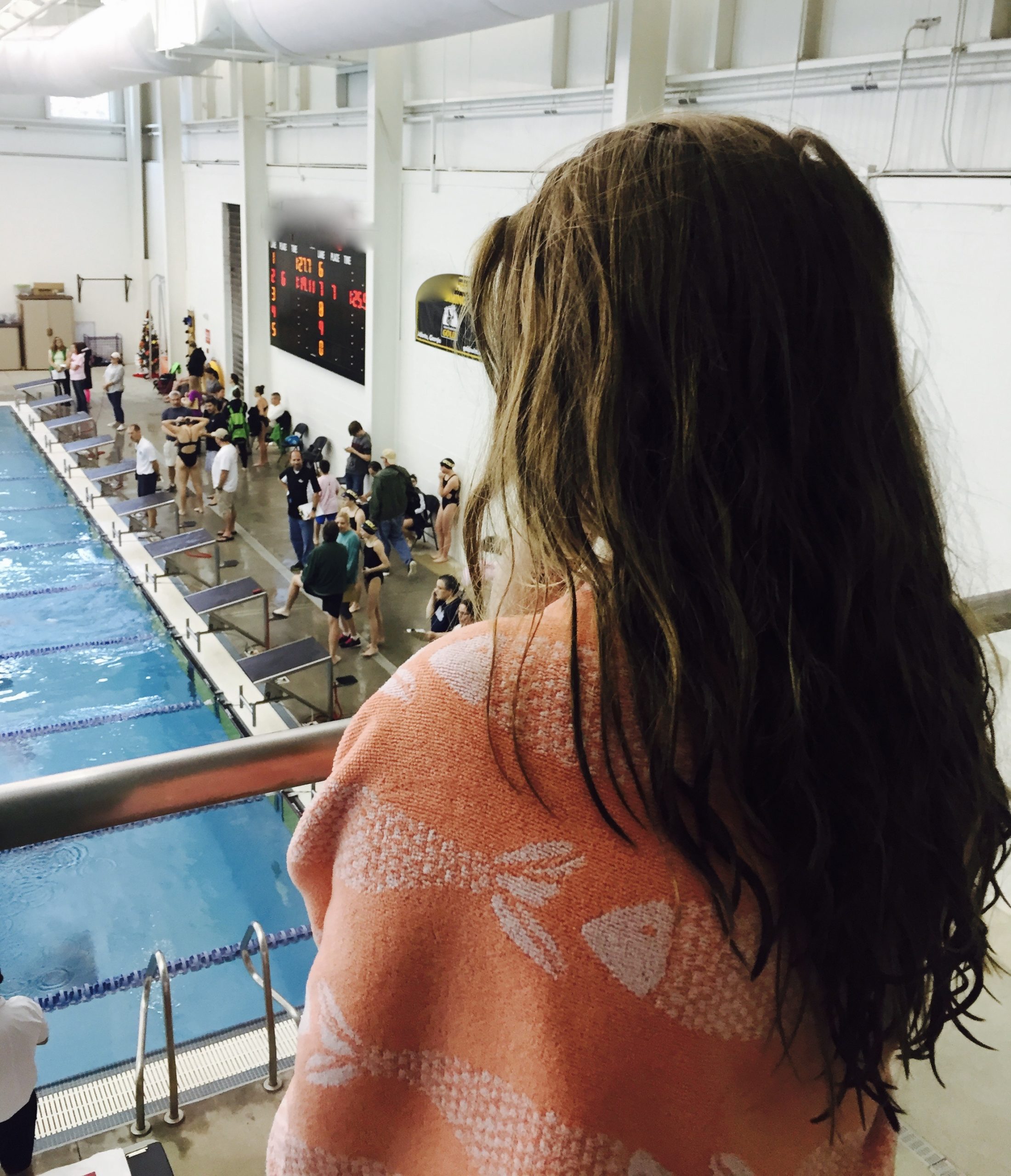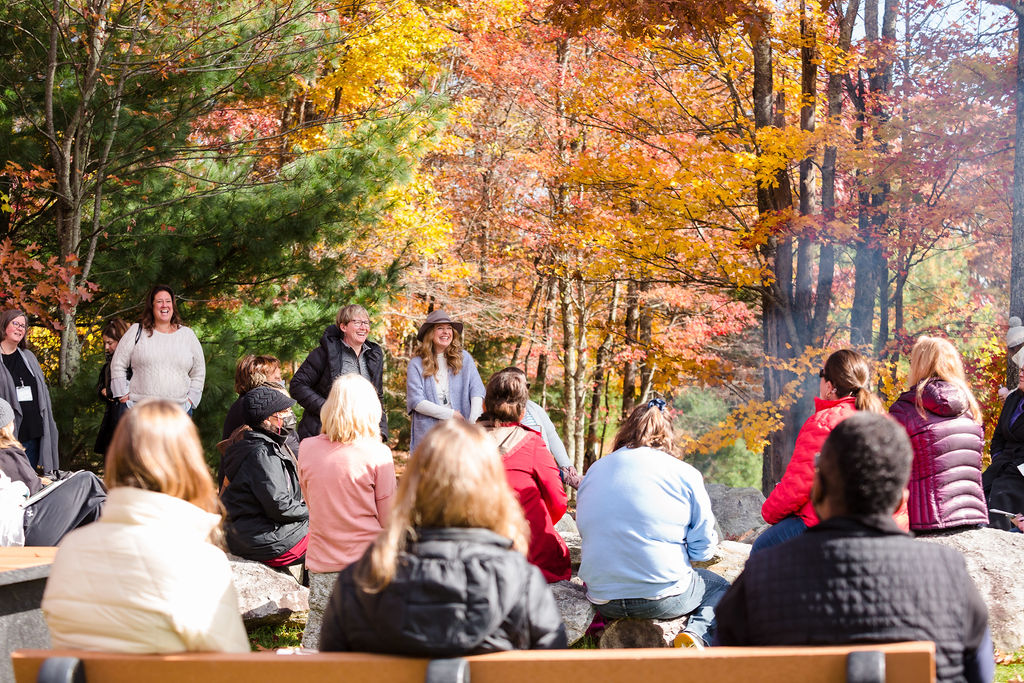
This summer, I got the Best ‘Worst’ Advice for helping teens become more autonomous, meaning they learn to help themselves.
Best ‘Worst’ Advice? How can it be both, you ask? I’d love to explain (and find out I am not alone in this) …
See, it all started at the summer orientation hosted by my daughter’s college back in June.
I was seated in an auditorium with 200 parents eager to learn the ins and outs of supporting their first-time college student. The faculty advisor addressing us really got our attention with the following suggestion:
“When your college freshman texts you with a problem they’re having, I suggest you don’t respond right away.”
Yikes!
We’d been warned that what we were about to hear would be uncomfortable, but for someone Formerly Addicted to Helping, that suggestion fell into the category of agonizing.
Even though I wanted to put my fingers in my ears and sing, “lalala… I can’t hear you,” I listened to the logic behind the advice, which was:
In that space between the young adult vocalizing the problem and the parent response, is time for THEM to problem-solve for themselves.
Okay, so I understood the rationale—but this strategy for cultivating autonomy in our budding young adult felt more than uncomfortable to me – it felt wrong. The more the college advisor elaborated on it, the deeper I dug in my heels.
‘That is the WORST advice,’ I silently scoffed. ‘I will NOT do that.”
Well, past experience tells me that whenever I have a strong internal reaction like that, it means something has struck a chord—and it would serve me well to investigate why.
Luckily, the summer months gave me plenty of chances to wrestle with this idea. Out of the bazillion pieces of information relayed to parents during orientation, I thought about the Dreaded Delayed Response (DDR) the most—especially when my daughter told me about a problem she was having.
I simply couldn’t imagine being silent on PURPOSE in her time of need.
And then something happened…
My plan to accompany my daughter to the Long Course Swimming State Championships at the end of July was ruined by COVID. I got sick – really sick. I would not be navigating roads, rooming with her, or doing anything an enthusiastic swim mom loves to do. My daughter would be doing this without me.

I regrettably broke the news to Natalie over the phone from my basement bunker and headed back to bed. While I slept most of the day, she arranged for a friend to accompany her on the long drive. She mapped a route that avoided one of the busiest interstates in the country. The next day, she successfully checked into her hotel room and went out of her comfort zone to dine with fellow swim recruits who were going to her same college.
When my daughter returned four days later, she gave me a detailed report of her adventure. She described a few things that had gone wrong and a lot of things that had gone right.
I immediately noticed a new confidence and enthusiasm about the future.
As if reading my mind, she explained, “I think I chose the right college for me—a place where I can belong.”
For some reason, Natalie’s statement brought to mind the words of the Athletic Director who spoke to the parents of athletes shortly after The Dreaded Suggestion was given to the entire group. Hearing it said again, but in a different way, was actually really helpful—and I’d completely forgotten.
The A.D said:
“Instead of turning to you when your child has a problem, we want them to learn to turn to their community here… and the resources here. You can best support them by directing them to do just that.”
Suddenly, I had an image of fourth-grade Natalie holding a fellow classmate securely on her lap during a movie. I hadn’t been there, but I was able to envision it given what the child’s parent said. The mother wrote:
“Please tell Natalie thank you for me. I was tucking my child in bed, and she told me Natalie was the only one in class that let my daughter sit in her lap. She is our cuddly and nurturing child who feels safer when tucked in a lap, even at ten-years-old. She said that Natalie held her for the entire movie, and that it was the best day because of that one thing.”
I’m sure that mother never imagined that this image of two girls creating community, right where they were, would be the image I needed now, almost ten years after the fact. This notion of reaching out to the resources and helpers in one’s proximity is a vital skill I want to reinforce when my daughter turns to me with a problem.
The truth is, I love to be needed… perhaps to a fault. I’ve done enough Soul Shift work to know that is because for so long, I tied my sense of worth to helping others. But with this self-awareness, I can check myself – and remember the goal is this:
For my child, who is a budding young adult, to gain the independence, ability, and confidence to help herself.
Will that look like delaying my responses to her text messages?
Given that she’s been at college for a week now, and I excitedly answer every text as soon as I see it, probably not.
But responding and rescuing are not the same thing – at least not when ego is in check.
Now back to the best/worst terminology I used to begin the story…
I use ‘worst' because I don’t believe blanket statements belong in sentences about how people should respond when a loved one turns to them with a problem. 1) Because no two humans are the same – and what may foster autonomy in one young adult might exacerbate stress in another, and 2) nuance is important when determining which situations might call for stepping back and which ones call for stepping in – and there are no absolutes until it happens.
But I also use ‘best' because the advice caused me to think about how my need to be needed can hinder my child’s ability to seek solutions and learn to make her own decisions. If I detect my motivation to give guidance is to feel worthy, then I am no longer helping my child; I am helping myself.
Keeping in mind the goal is for kids to develop their own autonomy as individuals is so important – but so is recognizing that process will differ from one family to the next. Research shows that in general, parents can promote autonomy by “actively redefining the parent–student relationship, encouraging responsibility, and relinquishing unnecessary control” (Weissman, Cohen, Boxer, & Cohler, 1989). How that looks in your family will look different than mine.
But when it comes down to it, I think there’s a universal hope for our budding young adults – that wherever they are, there will BE a safe “lap” for them to crawl into – and that they won’t hesitate to become one for someone else.
My friends, being in community during challenging seasons of life isn’t just vital for young people; it’s vital for grown adults too. Never in my wildest dreams did I imagine Soul Shift, the online course I developed in 2018, would become a beacon of support and connection for so many people in these isolating and unstable times. If you’ve wanted to take part, that opportunity is here. A new session of Soul Shift begins in September. I’m calling this updated series with live gatherings and hand in hand support, Soul Shift LIFT, because the past seven sessions have proved that when we lift ourselves, we lift each other. Registration opens at an early bird price this Sunday, so be sure enter your email here, so you don’t miss the notification about this transformative, self-paced journey.
HOWEVER… if an in-person gathering with loving people from this community is what you crave right now, there are still some spots available for the fall Soul Shift retreats. The small gathering at Omega Institute in Rhinebeck, NY is just 2 weeks away, and the gathering at The Art of Living in Boone, NC is just 2 months away. Together, we’ll experience restorative time listening to ourselves and each other so we can move forward with a personal map to our lost joy and buried dreams. This is the power of being seen, heard, and valued in community. Click here to register for the September retreat and click here for the November retreat.
I leave you with one of the many beautiful testimonies from a Soul Shift member:
“I cannot say this about any other course I have taken… SOUL SHIFT has CHANGED MY LIFE for the better. It felt like I was taking an important ride with a close friend who totally understands me. I was truly impressed with all the ways Rachel engaged participants in thinking through the hardest stuff, the most personal, and the most challenging obstacles. She made the work possible, and even joyful, as we got to laugh out loud and hold each other’s hands. I am looking forward to joining again for another exciting ride!” –D.G.




This was so wise! I love that you make the distinction about carefully discerning about when and how to help. It definitely involves both the head AND the heart. Beautiful words, as always! Wishing you blessings during this time. xoxo
Thank you so much, Christine! I appreciate you!
That advice can be so hard for parents (especially for Mums – or Moms, for the Americans) to hear.
And, of course, it doesn’t apply to anything which is an urgent risk to their health or safety. [You’re in hospital, my feet won’t touch the ground I’ll be moving so fast]
But, often, I think, teens and young adults are venting their emotional overflow (anxiety, concern, etc) in a ‘safe’ direction, rather than asking us to come pick up the pieces. As the Mum of a ‘drama’ kid – it’s a lesson I’ve learned – not everything is actually the disaster it’s initially portrayed as.
Reflective listening can be a great way to deal this this. “That sounds tough. How are you feeling about it now?”
And, part of that can be the delayed text response.
The first part can be immediate:”That sounds tough. Give you a call this evening and chat. Love you”
So you’re acknowledging them (making both of you feel better 😉 – it’s tough being an empty nest parent, too). Setting up a future chat date (where the topic might or might not come up – it may have just been a total storm in a teacup) – but you can touch on it “So, that thing with the guy in the lift – what was that?”
And doing the mandatory Oooooohhhhhh Mum! PDA (which they claim to hate, but secretly find reassuring)
Finally, it’s really important for them and their growth (as the Uni people were saying) for them to figure out the local safety nets, and ways to problem-solve. Actually, it’s probably a good idea to start doing this well before they leave home – so they get the practice. [My high-school teacher friends tell me that they love the parents who stop rescuing their kids from the everyday events. Those kids learn better, are more resilient, and have greater levels of responsibility]
Time to park the helicopter.